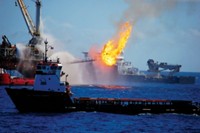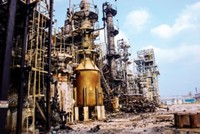Advertisement
Grab your lab coat. Let's get started
Welcome!
Welcome!
Create an account below to get 6 C&EN articles per month, receive newsletters and more - all free.
It seems this is your first time logging in online. Please enter the following information to continue.
As an ACS member you automatically get access to this site. All we need is few more details to create your reading experience.
Not you? Sign in with a different account.
Not you? Sign in with a different account.
ERROR 1
ERROR 1
ERROR 2
ERROR 2
ERROR 2
ERROR 2
ERROR 2
Password and Confirm password must match.
If you have an ACS member number, please enter it here so we can link this account to your membership. (optional)
ERROR 2
ACS values your privacy. By submitting your information, you are gaining access to C&EN and subscribing to our weekly newsletter. We use the information you provide to make your reading experience better, and we will never sell your data to third party members.
Specialty Chemicals
Movers And Shakers
Rebounding from serious accidents, MFG Chemical ups its game
A family-owned Georgia company goes to private equity and makes it to Texas
by Rick Mullin
February 11, 2019
| A version of this story appeared in
Volume 97, Issue 6

“We find that within every value chain there are unique businesses,” says Kristian M. Whalen, a managing director of Platte River Equity. “They do something pretty special in a niche market. Maybe in manufacturing, maybe in services.”
MFG at a glance
▸ Headquarters: Dalton, Georgia
▸ Annual sales: Approximately $100 million
▸ Employees: 165
▸ Facilities: Dalton (three plants); Pasadena, Texas
▸ Products: Derivatives of maleic anhydride, glacial acrylic acid, 2-ethylhexanol
▸ Key markets: Water treatment, oil-field services, coatings, soaps and detergents, agriculture
Some are so special, Whalen says, that they can’t easily be brought into line when “800 lb gorilla” customers press for lower prices. These are the companies the Denver-based private equity firm likes to invest in.
Platte River saw just such a company in Dalton, Georgia, the carpet and flooring capital of North America: MFG Chemical, a family-owned business that since its founding in 1980 had grown into a force to be reckoned with in custom chemistry and maleic anhydride–based surfactants.
Initially serving local manufacturers, MFG had branched into water treatment, oil-field services, and other markets. It acquired two Dalton-area manufacturing sites in addition to its headquarters plant along the way to becoming a $100 million-per-year company and one of the largest consumers of maleic anhydride in the US.
For its part, MFG was poised for fundamental change when it connected with Platte River. The company was working to allay concerns about safety after serious accidents in 2004, 2012, and 2014. And MFG was grappling with the loss of CEO Charles Gavin IV, son of its founder, who had died on Christmas Day, 2015. With no succession plan in place, MFG was searching for a new owner ready to invest.
Platte River acquired a controlling interest in MFG in 2017 and soon helped it accomplish a long-held stretch goal: the acquisition of a plant near its customers in the oil patch. With the backing of its new owner, MFG purchased Gulf Bayport Chemicals, a maleic anhydride derivatives maker in Pasadena, Texas. MFG has since launched a capacity expansion there, including the installation of a 75,000 L reactor.
The expansion in operations accompanies an expansion in management, Whalen says. Among the positions added with Platte River’s support are chief financial officer, chief science and technology officer, and sales manager for the Gulf Coast. Keith Arnold, who started at MFG in 2006 as sales manager and succeeded Gavin as CEO, remains in place, and the Gavin family retains a minority stake in the company and has a seat on its board.
Platte River might not have been interested in MFG had it not been for an earlier personnel decision by Gavin: the hiring of a senior environment, health, and safety (EHS) manager.
Safety was a central concern for a firm that, in 2004, was responsible for a runaway reaction involving triallyl cyanurate. A large reactor in Dalton burst, producing a cloud of allyl alcohol and possibly hydrogen chloride. The accident led to several injuries and the evacuation of over 200 families living nearby.
Another runaway reaction in 2012 resulted in an explosion that sent 40 people to the hospital for decontamination.
Advertisement
Two years later, operator error caused a release of maleic anhydride that killed one worker and injured another, prompting the search for new EHS leadership. Gavin brought on Barry Lassiter, a 40-year operations and EHS veteran at DuPont and Invista, DuPont’s fibers spin-off in nearby Chattanooga, Tennessee.
Lassiter was alerted to the opening for a safety and operations manager at MFG by a professor at Chattanooga State Community College, where he guest lectured on safety.
“The more I learned about it, the more I realized this would be awesome,” Lassiter recalls. “Here I am coming to the end of my career—wouldn’t it be wonderful to create something before I hang up the boots. What is knowledge and experience if you don’t share it?”

Lassiter says he was aware of the three accidents as well as citations MFG had received from the US Occupational Safety and Health Administration. “I sat down with Chuck Gavin. I needed to know his commitment to improving the culture at MFG, because if it didn’t match up with my values and beliefs, I would not have come.”
Satisfied, Lassiter made the move and began instilling a level of safety consciousness comparable to what he witnessed at DuPont. Lassiter admits to being given to aphorisms that plant workers refer to as Barryisms. One favorite: “I think of safety as an opportunity. An opportunity to get hurt.” An effort to identify and eliminate hazards, he says, needs to function as a constant engine in the back of workers’ minds.
Claude C. Craig, chair of the Local Emergency Planning Committee of Whitfield County, where Dalton is the largest city, says he is satisfied that MFG complied with a consent decree signed with the US Justice Department and the Environmental Protection Agency in regard to the 2012 explosion. It required $3 million in corrective measures at MFG’s Georgia plants and payment of a $400,000 civil penalty. The company was required to commission a safety assessment of the plants.
MFG also paid OSHA $57,055 in fines related to the accident in 2012 and $67,144 related to the 2014 incident.
“They have made a valiant effort to turn things around since the unfortunate incidents,” Craig says.
Thanks to the safety improvement efforts, MFG was in good shape by the time Platte River showed up, Arnold says. The investment firm, he adds, was impressed with the company’s response to the accidents and supportive of its growth ambitions.
And that support was essential. “We had been looking for something on the Gulf Coast for years, but as a family-owned company, we were limited in our expansion,” Arnold says. MFG explored joint venture options, but none materialized. Once the deal with Platte River closed, MFG took the lead in identifying Gulf Bayport as an acquisition candidate.
Landing the Texas firm had a catapulting effect. “Watch out what you ask for,” Arnold quips. “It was like, holy cow, we have a heck of an asset here!” MFG retained the facility’s 45 employees and began the current expansion.
Whalen says Platte River works collaboratively with the companies it acquires, making the most of their management’s expertise. “It is not a top-down, heavy-handed approach,” he says.
Nor are chemical makers prominent in the firm’s portfolio. Arnold, though, attests to Whalen’s close attention to the dynamics of MFG’s business. “Kris Whalen knows more about propylene index pricing than you would ever imagine,” he says.
As it did with Lassiter in 2014, MFG turned to a veteran of a large company when it filled the new position of chief science and technology officer in 2017. Guido De Stefano, who had 17 years of experience in the oil and gas industry, came to MFG from the oil-field sevices giant Schlumberger.
A chemist by training, De Stefano had hired MFG as a supplier earlier in his career when he worked for Shrieve Chemical, an oil-field chemical firm. He developed a relationship with Arnold, who later recruited him.
“When I finally got a list of MFG’s customers, I was impressed with the level of quality,” De Stefano says. “We were not working with what we call in the field ‘mom and pops.’ We were working with leading companies in the chemical industry. And we had to act like them.”
De Stefano did see some room for improvement, beginning with the physical plant. In addition to the investment in Texas, the company has budgeted $5 million annually for upgrades across its three Georgia facilities, including new tanks, boilers, and pipe work, De Stefano says.
The company is also putting an underutilized stainless-steel pilot reactor to work in Georgia and weighing adding another pilot reactor, he says.
Arnold points to another underused asset: a Chempax enterprise resource planning (ERP) system that Platte River is helping bring up to speed. Modules that tie manufacturing data into business operations are now being deployed, and the system is being tuned to provide better access to financial data.
MFG is also leaning on IT support from its ERP system to invigorate a chemical process–vetting regime that uses a stage-gate approach to garner approvals for new chemistry from operations, research, and manufacturing departments. The company began implementing the process after the 2004 chemical release, according to Arnold.
“That was a release from a chemistry that we discontinued,” he says. “It was a chemistry that was not suitable for us.”
Meanwhile, MFG is working its niches in maleic anhydride chemistry and custom manufacturing. “Think of us as Baskin-Robbins,” Whalen says. “We have 31 flavors and can do butterscotch in a short run where someone else wouldn’t want to.”
Whalen says that Platte River, like most private equity firms, generally holds its assets for five to seven years before finding a new owner. But during that time, he says, Platte River invests as a long-term owner. “We behave as if we are going to hold a company for 100 years,” he says.





Join the conversation
Contact the reporter
Submit a Letter to the Editor for publication
Engage with us on Twitter